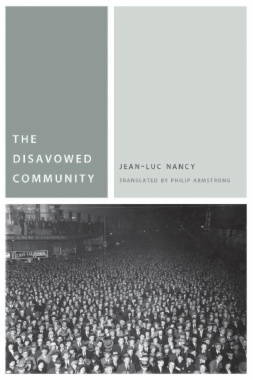Over thirty years after Maurice Blanchot writes The Unavowable Community (1983)—a book that offered a critical response to an early essay by Jean-Luc Nancy on “the inoperative community”—Nancy responds in turn with The Disavowed Community. Stemming from Jean-Christophe Bailly’s initial proposal to think community in terms of “number” or the “numerous,” and unfolding as a close reading of Blanchot’s text, Nancy’s new book addresses a range of themes and motifs that mark both his proximity to and distance from Blanchot’s thinking, from Bataille’s “community of lovers” to the relation between community, communitarianism, and being-in-common; to Marguerite Duras, to the Eucharist. A key rethinking of politics and the political, this exchange opens up a new understanding of community played out as a question of avowal.
- Cover
- Half Title
- Title
- Copyright
- Contents
- Preface to the English-Language Edition
- Translator’s Introduction
- 1 “Community, Number”
- 2 Beyond the Political
- 3 The Heart or the Law
- 4 The Consumed Community
- 5 “Essentially That Which Escapes”
- Coda
- Acknowledgments
- Notes

